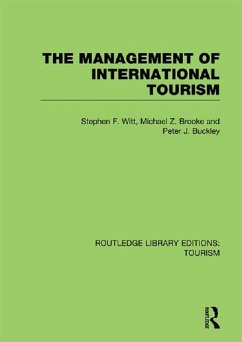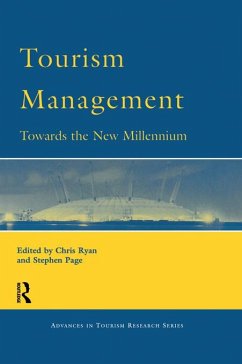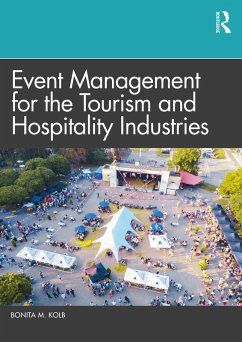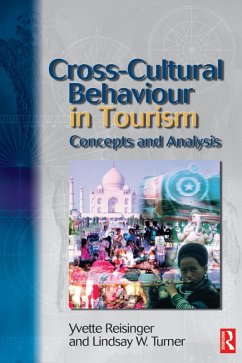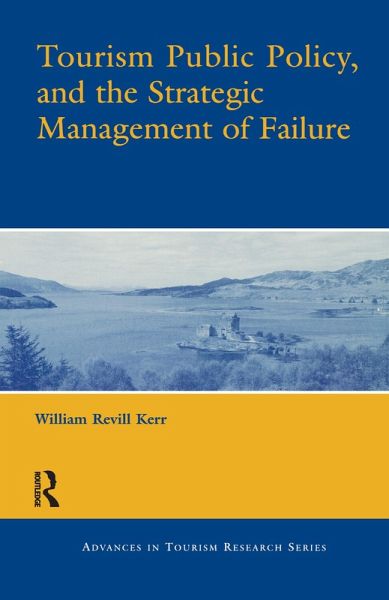
Tourism Public Policy, and the Strategic Management of Failure (eBook, PDF)

PAYBACK Punkte
18 °P sammeln!
First Published in 2003. The development of tourism and tourism public policy, and the strategic management of failure of tourism to realize its commercial potential are all considered in this book. The particular salience of this research lies in the fact that it has been conducted during an interesting (politically) and volatile (globally) period for the world's tourism industry. Increasing competition, economic, and environmental issues combined with the continued threat of terrorism, and instability in the Middle East, necessitated governments assessing and redefining their tourism public ...
First Published in 2003. The development of tourism and tourism public policy, and the strategic management of failure of tourism to realize its commercial potential are all considered in this book. The particular salience of this research lies in the fact that it has been conducted during an interesting (politically) and volatile (globally) period for the world's tourism industry. Increasing competition, economic, and environmental issues combined with the continued threat of terrorism, and instability in the Middle East, necessitated governments assessing and redefining their tourism public policies. How they approached this in the late nineties and new Millennium is reflected in the first part of the book. The second part focuses on Scotland whose tourism public policy issues in the late nineties were focused, concentrated, and mutated by globalization, political devolution, and the restoration of the Scottish Parliament in 1999. In consequence tourism and economic development powers were devolved to Edinburgh from Westminster.However, other powers such as fiscal and employment policies which impacted greatly on tourism were reserved to Westminster, a complex situation which the book has also set out to explain, as it does the Scottish Parliament's inability to influence such powers. During the lifetime of the first parliament in almost three hundred years, Scottish tourism was confronted by significant challenges e.g., the foot and mouth epidemic, the terrorist atrocities in the USA, Indonesia, and Kenya, the combination of which for a short but crucial period virtually decimated North American tourism trade to Europe, and of course recession.
Dieser Download kann aus rechtlichen Gründen nur mit Rechnungsadresse in A, B, BG, CY, CZ, D, DK, EW, E, FIN, F, GR, HR, H, IRL, I, LT, L, LR, M, NL, PL, P, R, S, SLO, SK ausgeliefert werden.








